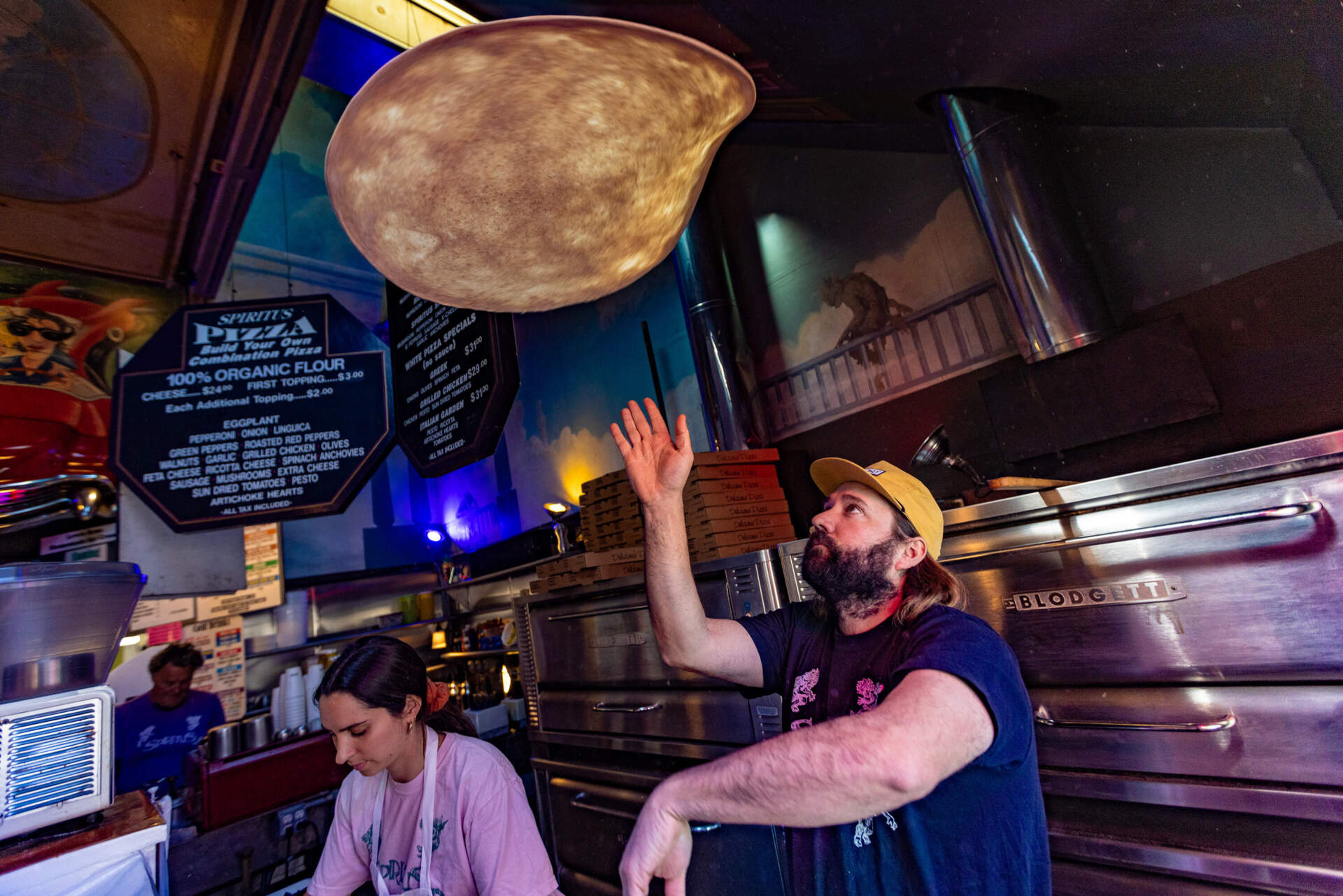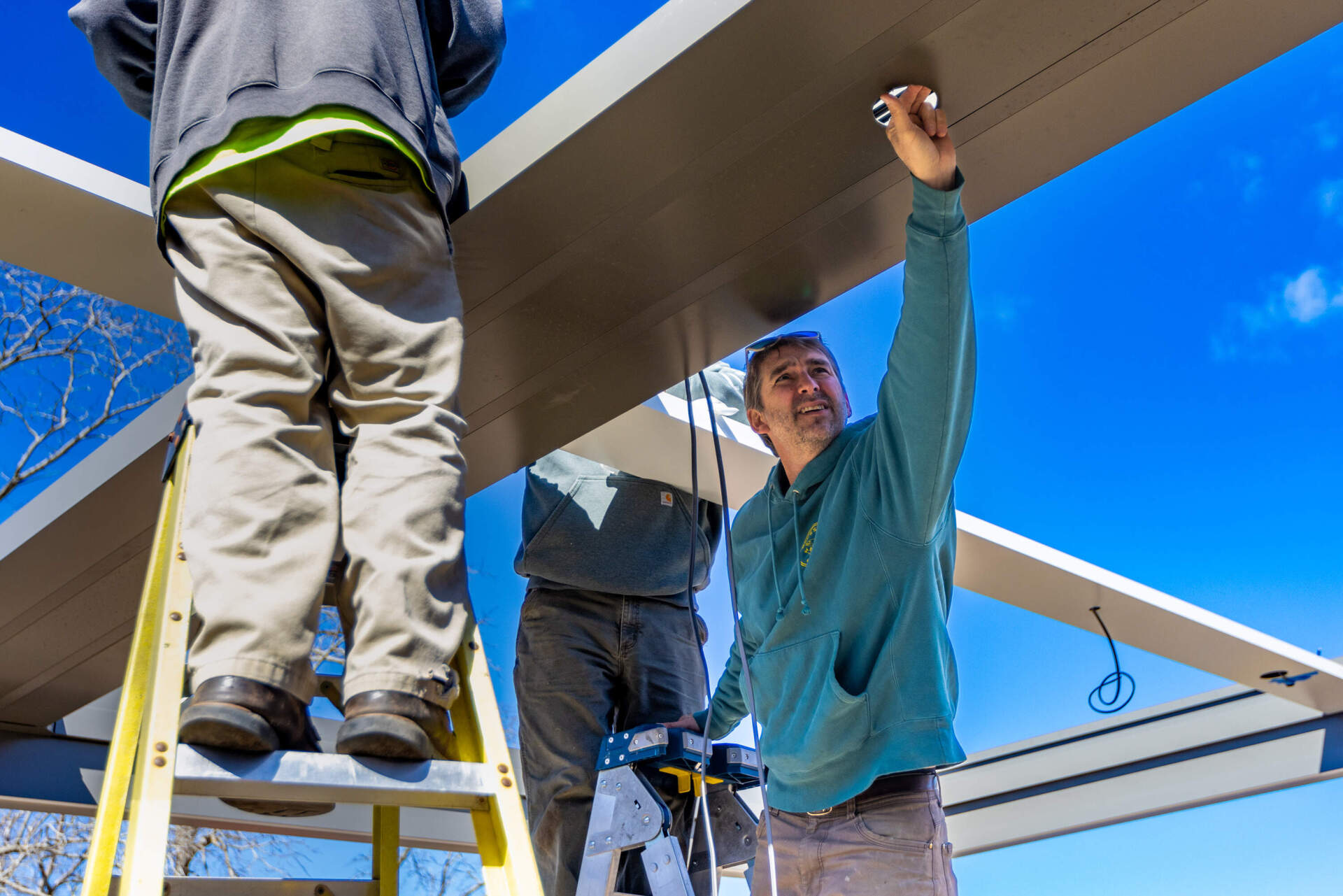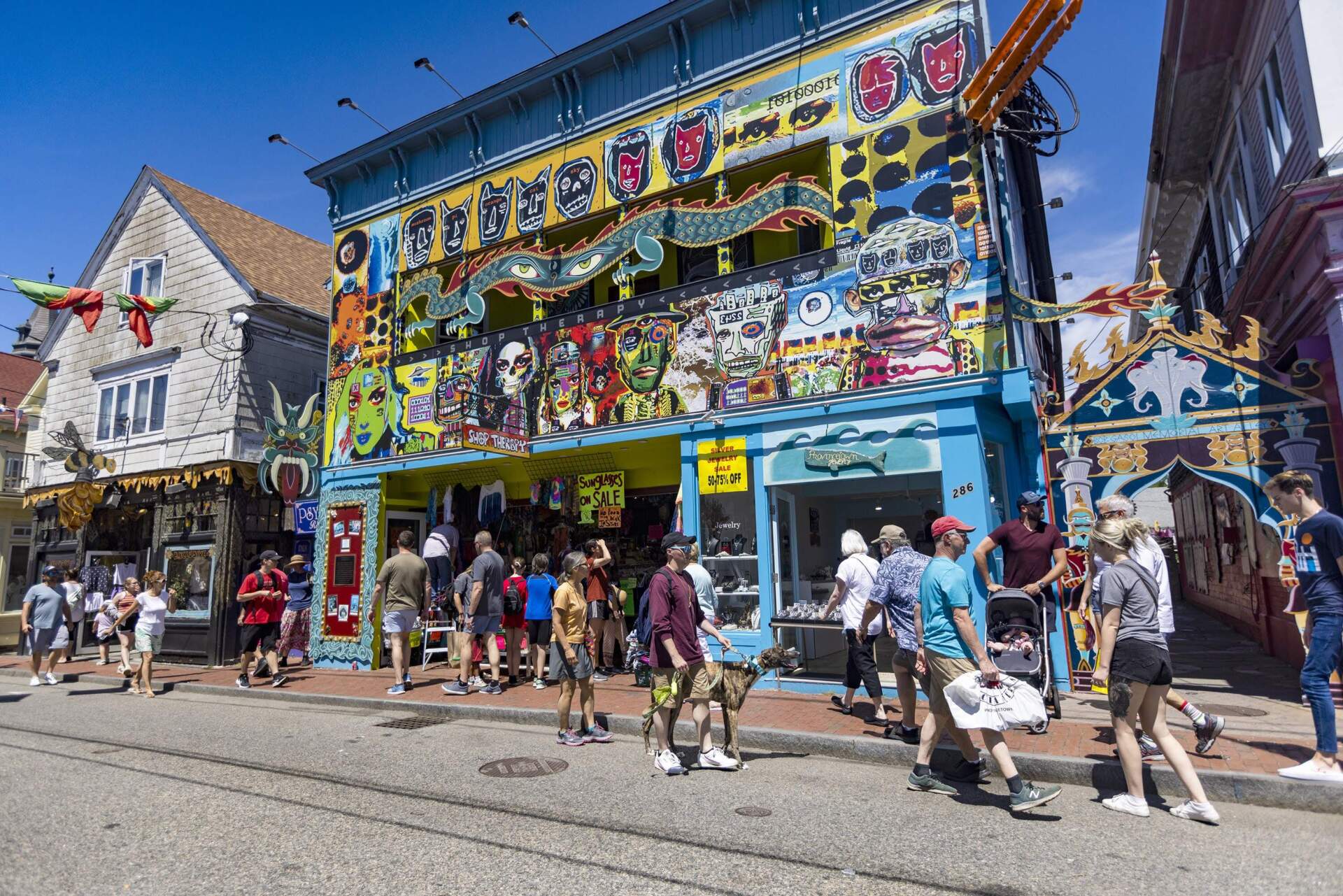Advertisement
Some Cape Cod businesses in limbo waiting on visas for summer workers

It’s that time of year on Cape Cod, when restaurants like Mac’s Shack haul tables and chairs out of storage and upgrade their outdoor patios in anticipation of summer, when the region's population swells like a surf break.
But Mac Hay, the owner of this Wellfleet seafood restaurant, is anxious and frustrated.
That’s because he’s applied for federal visas so he can hire about 100 foreign workers to help staff his kitchens. In the past, some of his applications were approved by March. But by early April, Hay said he hadn’t heard anything.
“ The lack of information has caused incredible uncertainty and confusion, and why that has to take place is beyond me,” Hay said. “And that’s the part, as a business owner, [that's] frankly infuriating because we have done nothing wrong. We don't deserve to be left in the dark.”

For businesses that rely on these temporary visas — called H-2B visas — the process can feel unpredictable. But this year, under President Trump, it’s even more volatile. The program has been riddled with delays, communication issues and layoffs at the United States Citizenship and Immigration Services, which runs it with help from other federal agencies.
That’s a problem for seasonal businesses on Cape Cod, where proprietors say the foreign workforce is essential for a successful tourist season. Massachusetts is one of the top states for summer H-2B visas in the hospitality industry, according to Department of Labor data.
“We don't deserve to be left in the dark.”
Mac Hay
U.S. Rep. William Keating, whose district includes Cape Cod and the islands of Nantucket and Martha's Vineyard, has been the conduit between businesses and the federal government.
"I've had restaurant owners tell me confidentially that if [H-2B visas] aren't available, they're not gonna be able to function,” he told WBUR.
An imperfect system
The H-2B program allows U.S. employers to hire foreign workers to fill temporary, seasonal jobs. Each fiscal year, the federal government allocates 66,000 H-2B visas, often for positions in the hospitality, construction and landscaping industries. In a lottery system, half of the visas are approved for jobs, starting in October, the other half are reserved for summer positions, starting in April.
There's an annual cap on the total number of H-2B visas granted, but some presidents have occasionally issued additional visas.
U.S. employers filed nearly 150,000 applications for H-2B workers to start jobs April 1, according to immigration attorney Keith Pabian. That’s far more than the number of available visas.
“ There's always this fear that they're not gonna be able to get their workers,” he said.
The application process for businesses seeking H-2B workers has always been a fickle ordeal. Trump, for the first three years of his first term, issued additional visas after the cap was met. But in 2020 Trump suspended entry for some foreign workers to the U.S. until the end of the year.
Advertisement
The Department of Labor records show Trump has employed H-2B workers at Mar-a-Lago this year. But eliminating the visa program is part of Project 2025, a conservative wish list of policy actions, many of which the Trump administration has adopted.

Any delay in the visa process puts a strain on the entire system, said Cecilia Esterline, an analyst at the Niskanen Center, a libertarian think tank that advocates for immigration reform.
“It creates a lot of pressure on the H-2B and for us to not know whether or not these visas will be issued timely,” Esterline said. “I think that can create a concerning situation for many employers who are really relying on these visas to have a legal workforce. These are employers who are complying with the law, who want to access a workforce that has legal work authorization.”
USCIS declined to answer questions about delays with the program.
The agency laid off 50 employees in February, according to NPR. This was part of the massive federal layoffs carried out by DOGE, a Trump administration initiative that has spearheaded firings and contract cancelations across the federal government.
Esterline said what happens next for the H-2B system is unclear.
“I think that there's valid reason to be concerned about the future of the H-2B program, particularly in the current environment that we're in,” she said.
Carnival fun takes work
For entertainment businesses like The Big E in West Springfield, the visa program continues to be a big concern. County fairs, carnivals and festivals are run by amusement operators and concession companies, which have long tapped into the H-2B workforce.
”If we can't get the labor, then we can't produce our event,” said Eugene Cassidy, president of the Eastern States Exposition and The Big E, the fourth largest fair in North America in terms of visitors.
“ Most of our labor here at the Eastern States coming over on H-2B visas are South African young people," he said. "These are jobs that Americans don't want.”
The work is physically demanding and can require traveling from one town to the next.
“It’s itinerant work. You're on the road for seven months,” he said.
The amusement industry has lobbied Congress to let carnival workers fall under a different visa category that applies to artists and performers — which doesn’t have a limit.
If the labor shortages aren’t addressed, the carnival industry is in trouble, said Greg Chieko, president of the Outdoor Amusement Business Association in West Springfield.
“In the last eight years, we have lost 50% of the carnivals in this country," he said. "If you think about the fair, and particularly in New England, it's one of the last slices of Americana we have left.”
Game of chance
As owner of a pizza joint in Provincetown, Guillermo Yingling knows the pitfalls of the H-2B visa program.
On a recent day in March, he was behind the counter at Spiritus Pizza tossing dough for the restaurant’s free pizza giveaway, the official start to its season each spring.
“Some people look for certain flowers, other people look for their free slice,” said Yingling.

He and his family own three restaurants on the Cape. In recent years, they haven’t been allocated many H-2B workers. This year, he’s had more luck: of the 44 visas Yingling applied for, he's been awarded 16.
“Honestly, like that's not enough, but at the same time, we haven't done very well in the lottery in recent years,” Yingling said.
He’s tried not to depend on the H-2B program lately because it's become difficult to predict how many workers he'll get each season. But it’s almost impossible not to.
“The fact of the matter is there are not enough people to do these jobs here, and that has a lot to do with the housing crisis that is currently going on here,” he said.
In Wellfleet, Hay has relied on a steady supply of seasonal workers, mostly from Jamaica, to grow his restaurants and seafood businesses. That pipeline has allowed him to hire other people who keep the business running year round.
“You don't have the administrative staff positions, you don't have the HR, the accountants and the bookkeepers and our marketing team … if we don't have the H-2Bs,” he said.
If he doesn’t get them all, he said, he may have to reduce the hours at some of his restaurants. It’d be similar to how his businesses survived during the pandemic, he added.
“It burns you out, and it does things not just physically, but mentally,” Hay said.
A little more than a week after speaking with WBUR, Hay said he finally got an update on some of his visa applications; less than half of the approximately 100 H2-B visas he requested were approved. He’s waiting on others.
Keating said some of the summer visas have finally been approved. But he said he’s worried what the cumulative effects of Trump’s policies will mean for his district.
“It's a layered effect now,” Keating said. “It’s not just what they're doing with deportation, it's what they're doing with tariffs, what they're doing with governmental cuts, and that has an enormous effect.”
Hay agreed.
“It's not about how hard you work,” he said. “You have to have a little bit of luck. You have to have the political winds blowing in the right direction. I feel like maybe that's where the American dream is kind of falling apart.”
This segment aired on April 11, 2025.
